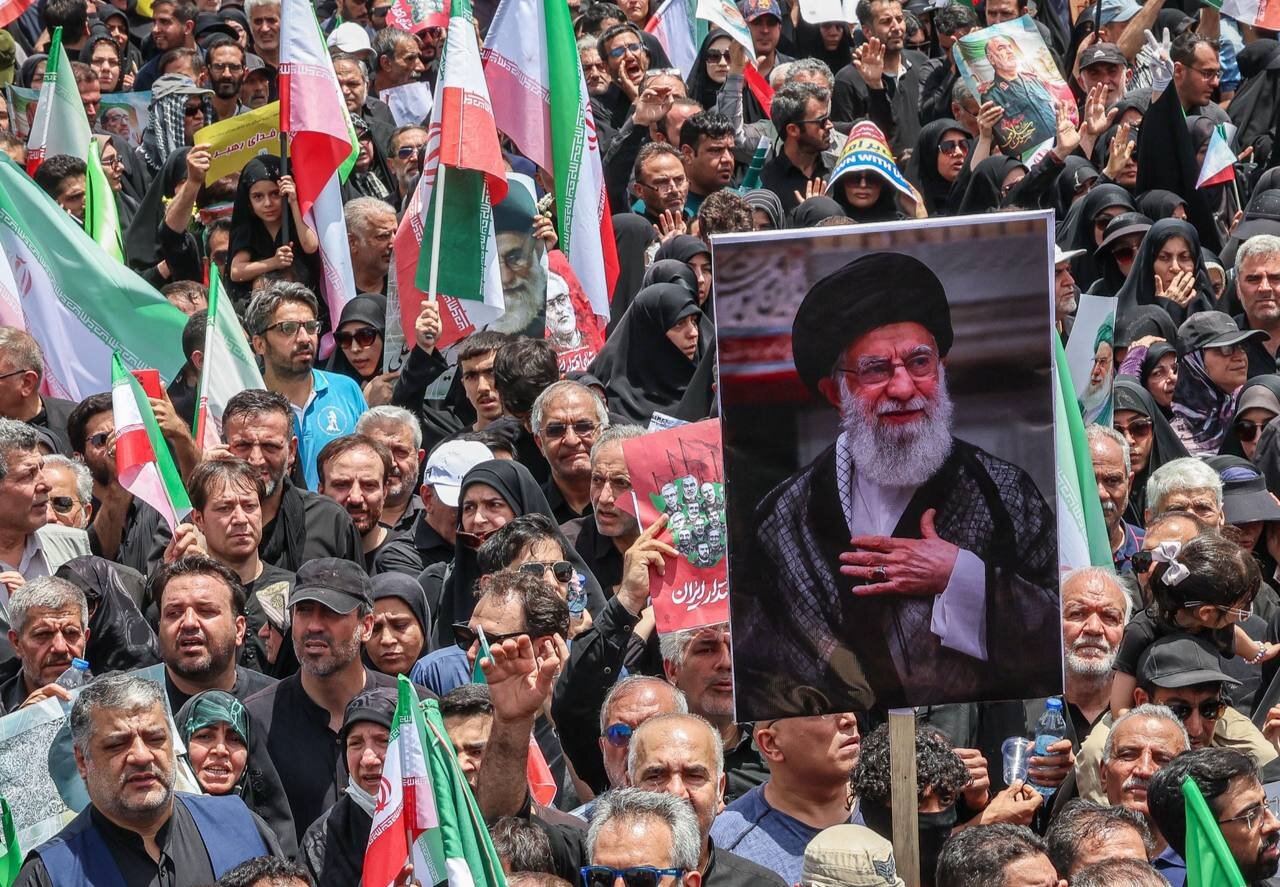Fatwas draw a red line: No tolerance for threats against Ayatollah Khamenei

TEHRAN – The Leader of the Islamic Revolution, Ayatollah Seyyed Ali Khamenei, is more than just a political leader; he is a deeply revered religious figure. As a Marja' al-Taqlid in a position of power, people not only seek his guidance to resolve questions of Islamic law and ethics, but also view him as a central guardian of their faith and its values.
This religious standing of Ayatollah Khamenei is something U.S. President Donald Trump seems to have failed to take into account in the past few weeks, during which he has made several threats of assassination against the Iranian Leader.
Trump said during Iran’s 12-day war with Israel that he knew where Ayatollah Khamenei was located, but he had decided to refrain from assassinating him “for now”. Israeli media said the U.S. and Israel tried to harm the Leader but could not figure out his location. Trump threatened Ayatollah Khamenei again after the war ended, outraged by his declaration that Iran will never surrender to American politicians and warmongers.
The U.S. President, meanwhile, appears to believe that any assassination attempt against Ayatollah Khamenei would only trigger a military response from Iran, a price the U.S. military and American forces stationed in West Asia would have to bear. However, there is also a separate price Trump himself would pay, because he has dared to threaten a figure with a massive religious following and profound influence among not only the 200 million Shia Muslims, but also countless more Sunnis who have grown extremely fond of Ayatollah Khamenei for his staunch support of the Palestinian cause in the past 20 months.
The potential repercussions for Trump if he were to act on his outrageous threats were underscored in a statement released by a prominent Shia cleric on Sunday. Ayatollah Naser Makarem Shirazi, himself a Marja, responded to an inquiry regarding the U.S. president's escalating rhetoric, stating unequivocally that anyone who harms Ayatollah Khamenei should be punished with death.
In a written note, Ayatollah Makarem Shirazi declared: “Any regime or individual threatening the leaders of the Islamic Ummah and acting on those threats qualifies as a Muharib.”
Under Shia Islamic jurisprudence, a “Muharib” is defined as someone who wages armed rebellion, terrorism, violent crimes, or other unlawful acts that spread fear and disorder in society. The prescribed punishment for such offenses is death.
Ayatollah Makarem Shirazi's remarks are being interpreted as a "Fatwa," a religious edict. Iran’s Ayatollah Nouri Hamedani and Iraq's Grand Ayatollah Ali Sistani have published similar statements seen as Fatwas.
What is a Fatwa and how serious is it?
A Fatwa is an interpretation of Islamic law issued by a Marja. It is binding for all Muslims, meaning that even if Islamic governments are not able to act on it, individual Muslims should ensure its enforcement.
A well-known example of states failing to act on a Fatwa, prompting individual Muslims to take matters into their own hands, is the case of Salman Rushdie.
On February 14, 1989, Imam Khomeini, the founder of the Islamic Republic, issued a historic Fatwa calling for the execution of Salman Rushdie, the British-Indian author of The Satanic Verses, a novel filled with blasphemy against Prophet Mohammad (PBUH). The fatwa stated: "I inform the proud Muslim people of the world that the author of The Satanic Verses book, which is against Islam, the Prophet, and the Quran, and all those involved in its publication who were aware of its content, are sentenced to death. I call on all zealous Muslims to execute them quickly, wherever they find them."
Rushdie was forced into hiding immediately after the fatwa was issued. He was placed under 24/7 British police protection and lived in safe houses for nearly a decade. In 1989, a bomb exploded at a London hotel where Rushdie was scheduled to speak.
Over three decades after the Fatwa was issued, when Rushdie emerged from hiding and began living more openly, the threat had not faded, contrary to his and the police's expectations. In 2022, Rushdie was stabbed on stage in New York by an attacker allegedly acting on the Fatwa. He has since retreated back into seclusion.
Leave a Comment